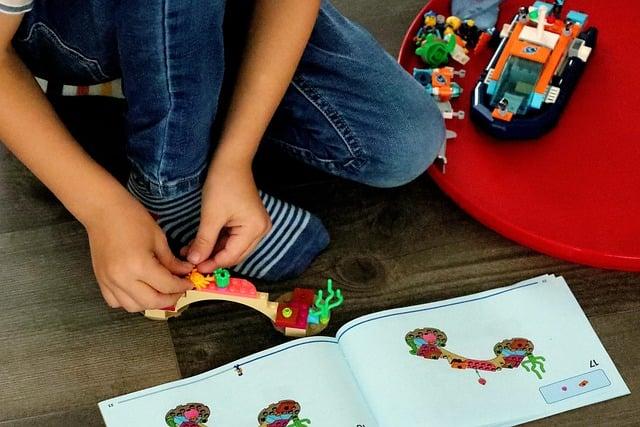In an era defined by rapid technological advancements and an ever-evolving global landscape, equipping children with the skills necessary to navigate an uncertain future is more crucial than ever. Among these essential skills, critical thinking stands out as a cornerstone of success. As education systems worldwide strive to adapt to new challenges, fostering the ability to analyze, evaluate, and synthesize information has emerged as a pivotal component in preparing young minds for the complexities of the modern world. This article delves into the significance of critical thinking in your child’s success, examining how it empowers them to make informed decisions, solve problems creatively, and cultivate a lifelong love of learning. By understanding the profound impact of critical thinking, parents and educators alike can better support children in developing the cognitive tools they need to thrive in any endeavor they choose to pursue.
Cultivating Analytical Skills for Lifelong Learning
In today’s rapidly evolving world, fostering a mindset that embraces analytical skills is crucial for nurturing a child’s ability to thrive in diverse environments. By equipping young minds with the tools of critical thinking, we prepare them to navigate complex problems and make informed decisions. These skills enable children to dissect information, assess evidence, and approach challenges with a structured, logical perspective. This not only enhances their academic prowess but also empowers them to engage with the world more thoughtfully and independently.
- Enhanced Problem-Solving: Analytical skills teach children to break down problems into manageable parts, making it easier to identify solutions.
- Improved Decision-Making: With a strong foundation in critical thinking, children can weigh options and consequences effectively, leading to more informed choices.
- Adaptability: The ability to analyze situations helps children adapt to new circumstances, a crucial skill in a constantly changing world.
- Greater Academic Success: Analytical skills are fundamental across all subjects, aiding in better understanding and retention of information.
By prioritizing the development of these skills, parents and educators can cultivate a generation of learners who are not only knowledgeable but also capable of thinking critically and innovatively. This is the cornerstone of lifelong learning and a pivotal component of a child’s future success.

Enhancing Problem-Solving Abilities through Critical Thinking
Critical thinking serves as a foundation for effective problem-solving, empowering children to navigate complex challenges with confidence and creativity. By fostering an environment that encourages questioning and exploration, we can help children develop the ability to analyze situations, identify potential solutions, and make informed decisions. This not only enhances their academic performance but also prepares them for real-world scenarios where critical thinking is invaluable.
- Encourage Curiosity: Create opportunities for children to ask questions and explore different perspectives.
- Promote Analytical Thinking: Engage children in activities that require them to break down information and evaluate evidence.
- Support Decision-Making: Provide scenarios where children must weigh options and choose the best course of action.
By incorporating these strategies into daily learning, we nurture a mindset that is not only analytical but also resilient, ultimately contributing to a child’s success across various domains.
Fostering Independence and Confidence in Young Minds
In a world where change is the only constant, nurturing critical thinking skills in children is not just beneficial—it’s essential. The ability to analyze situations, make informed decisions, and solve problems independently equips young minds to navigate the complexities of life with confidence. Critical thinking fosters a sense of self-reliance and empowers children to trust their instincts and judgments, leading to enhanced self-esteem and a proactive approach to learning and growth.
To cultivate these skills, parents and educators can encourage practices that stimulate curiosity and analytical thinking. Consider integrating activities such as:
- Open-ended discussions: Encourage children to express their thoughts and reasonings on various topics.
- Problem-solving games: Engage them in puzzles and games that require strategic thinking and decision-making.
- Reflective journaling: Promote writing about daily experiences to enhance introspection and self-awareness.
- Debate and argumentation: Organize debates to hone their ability to articulate ideas and counter differing opinions.
By embedding these practices into daily routines, we lay the groundwork for our children to become independent thinkers, ready to tackle future challenges with assurance and skill.
Practical Strategies for Parents to Nurture Critical Thinking Skills
Fostering critical thinking in children requires a blend of intentional strategies and everyday practices. One effective approach is to encourage open-ended questioning. Instead of asking questions that have a simple yes or no answer, pose queries that stimulate deeper thought, such as “What do you think will happen if…?” or “Why do you believe that is the best solution?” This encourages children to analyze and articulate their thoughts, fostering a habit of reflection.
Another strategy is to promote problem-solving through real-world scenarios. Engage children in activities that require them to find solutions, like cooking a new recipe together or planning a small family outing. These tasks necessitate planning, predicting outcomes, and evaluating decisions, thereby enhancing their critical thinking capabilities. Additionally, model critical thinking by sharing your thought processes out loud. Demonstrating how you approach challenges, weigh options, and make decisions provides children with a tangible framework to emulate and adapt.
- Encourage exploration and curiosity: Allow children the freedom to explore topics that interest them, fostering a natural inclination towards inquiry.
- Value diverse perspectives: Expose children to different viewpoints and cultures, teaching them to appreciate and evaluate varying opinions critically.
- Incorporate technology wisely: Use educational apps and online resources that challenge children to think critically, rather than passively consume information.



